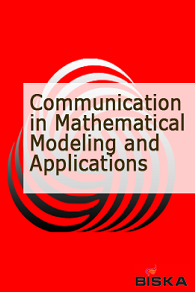The influences of mathematics beliefs on mathematics achievement through mathematics self-efficacy: A structural equation model
The influences of mathematics beliefs on mathematics achievement through mathematics self-efficacy: A structural equation model
Mathematics self-efficacy mathematics beliefs, structural equation model, measurement model, mathematics achievement,
___
- A. Bandura, Social foundations of thought and action: a social cognitive theory. 3rd end. Englewood Cliffs, N.J.: Prentice-Hall, 1986.
- A. Bandura, Social learning theory. 3rd end. Englewood Cliffs, N.J.: Prentice-Hall, 1977.
- P. M. Bentler, and D. G. Bonett, ”Significance Tests and oodness-of-fit in the Analysis of Covariance Structure,” Psychological Bulletin. 88, 3, 588-606, 1980.
- Başlangıç: 2016
- Yayıncı: Mustafa BAYRAM
Some characterizations of constant breadth timelike curves in Minkowski 4-space E_1^4
Huseyin Kocayigit, Zennure Cicek
Bifurcation theory of flexible exchange rates in the new Keynesian model: An Application
Mustafa Bayram, Anil Burcu Ozyurt Serim
Characterizations of dual spacelike curves of constant breadth in dual Lorentzian space D_1^3
Huseyin KOCAYİGİT, Muhammet CETİN, Beyza Betul PEKACAR
Characteristic properties of the parallel ruled surfaces with Darboux frame in Euclidean 3- space
Yasin Unluturk, Muradiye Cimdiker, Cumali Ekici
Hajar Kamalimoghaddam, Rohani Ahmad Tarmizi, Ahmad Fauzi Mohd Ayub, Wan Marzuki Wan Jaafar
